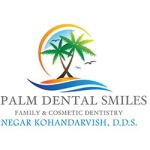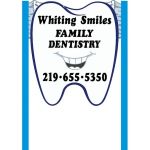- foods-high-in-sugar-and-acid - How sugary and acidic foods trigger tooth decay
- hidden-sources-of-sugar - Unexpected sugar in everyday diets
- frequency-vs-quantity-of-consumption - Why how often you eat matters more than how much
- real-life-dental-damage-case - A real story: How daily habits destroyed one smile
- foods-that-protect-against-decay - What to eat to prevent cavities
- final-thoughts-on-dietary-awareness - Empowering your smile with smarter choices
1. How sugary and acidic foods trigger tooth decay
Tooth decay isn’t just about skipping brushing—it starts with what you put in your mouth. Among all culprits, foods high in sugar and acid top the list. Bacteria in your mouth feed on sugars and release acids that erode tooth enamel, forming cavities. Sticky candies like caramels and gummies are particularly harmful because they cling to teeth, providing a feast for decay-causing bacteria.
Sodas, energy drinks, and even fruit juices are double trouble—they combine high sugar levels with acidity, creating the perfect storm for enamel erosion. It’s not just about the obvious sugar bombs. Even seemingly healthy items like flavored yogurt or sports drinks can contribute significantly to decay if consumed frequently and without proper dental care.
2. Unexpected sugar in everyday diets
Many people assume that avoiding candy means avoiding cavities. But the real risk often lies in unsuspecting foods. White bread, ketchup, salad dressings, and breakfast cereals (even the “whole grain” types) can be loaded with added sugars. These sugars break down rapidly in the mouth, especially refined carbs, feeding oral bacteria and accelerating tooth damage.
For instance, a “healthy” granola bar may contain upwards of 20 grams of sugar—almost the same as a candy bar. When these are eaten slowly or frequently throughout the day, they maintain a low pH in the mouth, weakening enamel and encouraging bacterial growth.
If you’re unsure whether your daily diet is helping or harming your teeth, visiting a dental product guide like Dentistry Toothtruth can help you identify tooth-friendly food products and snacks.
3. Why how often you eat matters more than how much
You might think a single soda a day is harmless, but if you’re sipping it over several hours, your teeth are under attack the entire time. It’s not just about how much sugar you consume—it’s how often. Every time you eat, especially sugary or starchy foods, your mouth’s pH drops and takes 20–30 minutes to neutralize. Constant snacking means your teeth stay in that vulnerable acidic state much longer.
For example, a child eating gummy vitamins slowly throughout the day is at higher risk than one who eats a piece of chocolate in one sitting and brushes afterward. Timing and oral hygiene are key factors often overlooked in the battle against cavities.
4. A real story: How daily habits destroyed one smile
Consider Jenna, a 32-year-old marketing professional who thought she was eating healthy. She avoided candy, but she drank lemon water every morning and snacked on dried fruit throughout her workday. Over time, she began experiencing sensitivity and noticed visible pits in her molars. A dental exam revealed early-stage decay and enamel erosion—classic results of acidic and sugary habits.
Her mistake? Believing that “natural” sugars and health trends like infused water couldn't harm her teeth. After switching to water, reducing snacking, and using remineralizing toothpaste recommended by a professional from Dentistry Toothtruth, Jenna saw significant improvement within months.
5. What to eat to prevent cavities
Not all food harms your teeth—some can actually help. Crunchy vegetables like celery and carrots stimulate saliva, which naturally washes away food particles and neutralizes acids. Cheese and dairy products are rich in calcium and phosphates that strengthen enamel.
Sugar-free gum with xylitol can help reduce cavity-causing bacteria, and green tea contains polyphenols that fight bacteria and plaque formation. Drinking water (especially fluoridated) is one of the best defenses against tooth decay, helping rinse the mouth and maintain a healthy pH balance.
Need help choosing the right dental-friendly snacks and oral care products? Visit Dentistry Toothtruth—your expert guide to oral health essentials and trusted service providers.
6. Empowering your smile with smarter choices
Preventing tooth decay starts with knowing what’s really in your food. From hidden sugars in everyday items to the long-term effect of dietary frequency, your eating habits play a massive role in oral health. While brushing and flossing are critical, no amount of brushing can undo the damage of poor dietary patterns.
Building awareness, reading food labels, and adjusting eating habits—like reducing acidic drinks and eating tooth-friendly snacks—can make a dramatic difference. Your smile is a reflection of your choices. For personalized product tips and expert recommendations, make Dentistry Toothtruth your trusted resource in protecting your oral health.







 Palm Dental Smiles4.0 (134 review)
Palm Dental Smiles4.0 (134 review) Whiting Smiles Family Dentistry3.0 (7 review)
Whiting Smiles Family Dentistry3.0 (7 review) Hillside Dental Care4.0 (192 review)
Hillside Dental Care4.0 (192 review) Buzbee Dental4.0 (225 review)
Buzbee Dental4.0 (225 review) Tenafly Dental Associates5.0 (837 review)
Tenafly Dental Associates5.0 (837 review) Affiliated Dental Specialists4.0 (48 review)
Affiliated Dental Specialists4.0 (48 review) The Importance of Oral Health Education During Pregnancy for a Healthy Pregnancy
The Importance of Oral Health Education During Pregnancy for a Healthy Pregnancy Best Tips for Brushing Your Teeth Properly for Healthy Gums: Essential Techniques for Oral Health
Best Tips for Brushing Your Teeth Properly for Healthy Gums: Essential Techniques for Oral Health Why Skipping Dental Checkups Can Lead to Bigger Oral Health Problems
Why Skipping Dental Checkups Can Lead to Bigger Oral Health Problems Advantages of Porcelain Dental Restorations
Advantages of Porcelain Dental Restorations How Can Diabetes Cause Tooth and Gum Problems? Preventing and Managing Oral Health Issues
How Can Diabetes Cause Tooth and Gum Problems? Preventing and Managing Oral Health Issues Healthy Habits for Promoting Good Oral Health and Hygiene: Tips for a Healthy Smile
Healthy Habits for Promoting Good Oral Health and Hygiene: Tips for a Healthy Smile